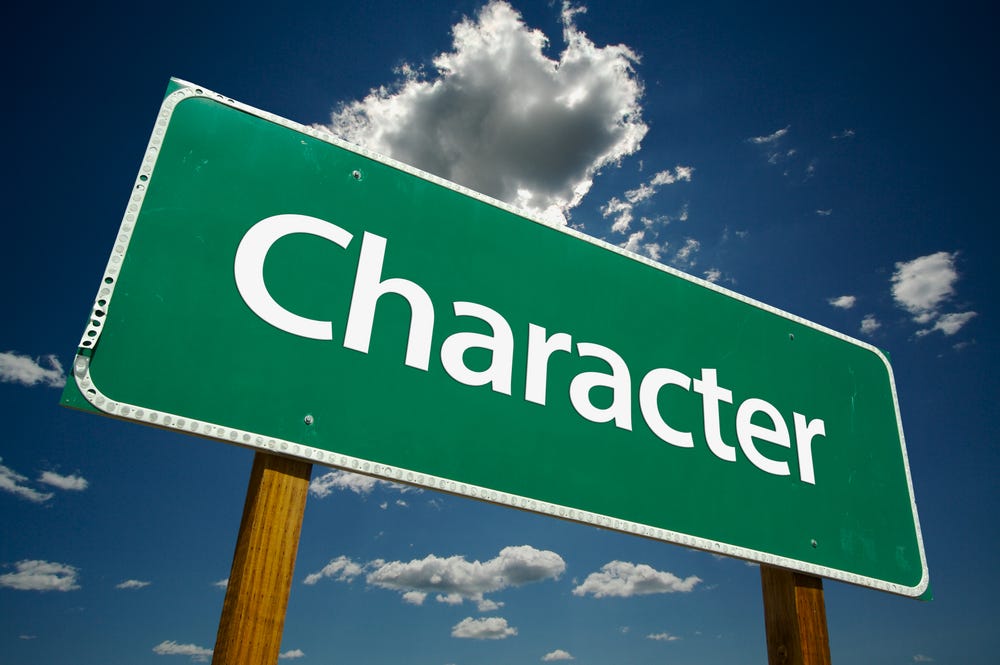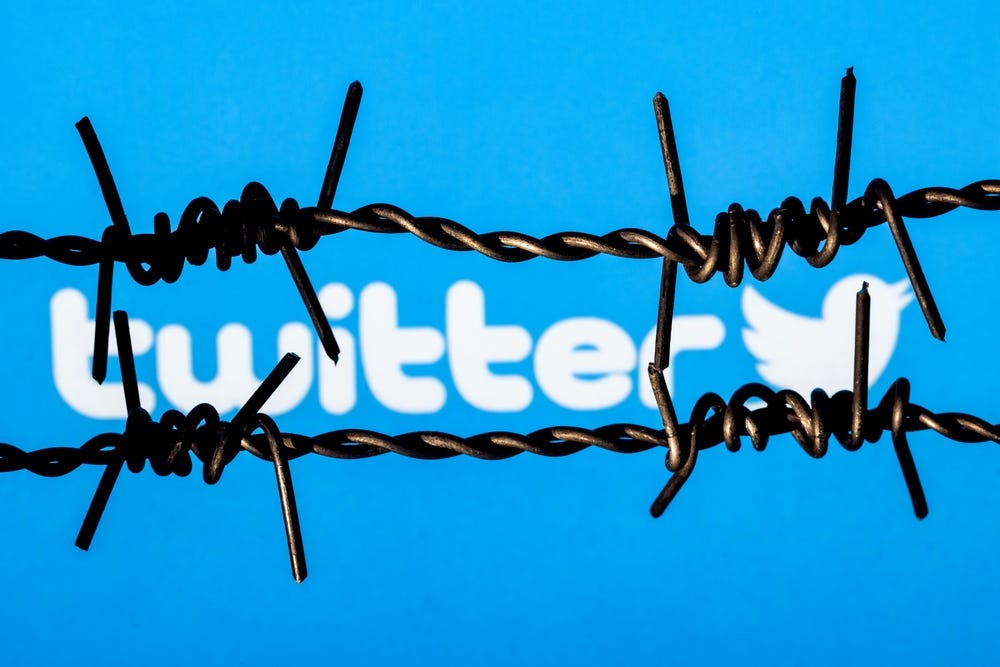E-Pluribus | November 7, 2022
Forget MAGA, let's MCGA instead; jailed for journalism; and could Elon Musk free Twitter?
A round-up of the latest and best writing and musings on the rise of illiberalism in the public discourse:
David French: Make Character Great Again
If some conservatives ran into the 1990s version of themselves and got into a discussion over politicians and character, one imagines the discussion could become quite heated. Writing for The Atlantic, David French once again appeals to both Democrats and Republicans, liberals and conservatives to affirm that character in politicians should not be judged on a sliding scale based on how badly one wants one’s side to win.
Here’s another simple truth: Character matters. This is the political assertion that meets with perhaps the ultimate “yes, but” response. “Yes, but so does policy.” “Yes, but no one is perfect.” “Yes, but we need to fight fire with fire.” As a wise retired federal judge once told me, when someone says “Yes, but” the only words that matter come after the “but.” The “yes” is appeasement; the “but” is belief.
And so it is with this political moment. We live in a time of partisan animosity so great that an October NBC News poll found that 80 percent of Democrats and Republicans “believe the political opposition poses a threat that, if not stopped, will destroy America as we know it.”
In those circumstances, the quest for character becomes a form of luxury belief. It’s what you cling to in safer, more secure times. That same poll found that “two-thirds of reliable Democratic and Republican voters say they’d still support their party’s political candidate, even if that person had a moral failing that wasn’t consistent with their own values.”
[ . . . ]
Consider the challenge of mutual hatred. Negative partisanship is now a central fact of American politics. Millions of Americans now support their political party not because they love its politicians or its policies, but because they hate and fear the other side.
It would be bad enough if that hatred and fear were rooted in truthful assessments of political opponents, but partisan Americans consistently misjudge their ideological adversaries. They rate them as far more extreme than they really are.
While partisan media shoulder much of the blame, ask yourself: How many politicians raise money and gain power by stoking as much hatred as possible? How often are they exaggerating the threat of their opponents? How often are they engaged in outright lies?
Read it all.
Billy Binion: This Court Case Could Make It a Crime To Be a Journalist in Texas
There are as many positions over the boundaries and limitations of the First Amendment as there are citizens in this country, but it is difficult to see how jailing a journalist for publishing information volunteered by a government agency could be justified under anyone’s definition. Billy Binion at Reason writes about one such case in Texas that appears to be confounding even some inside the justice system designed to protect our rights.
Last week, the full spate of judges on the 5th Circuit voted to rehear the case in a rare move that signals some discontent with Ho's majority conclusion. Put differently, it's not looking good for Villarreal, nor for any journalist in the 5th Circuit who would like to do their job without fear of going to jail for it.
In April 2017, Villarreal, who reports near the U.S.-Mexico border, broke a story about a Border Patrol agent who committed suicide. A month later, she released the surname of a family involved in a fatal car accident. The agency that confirmed both pieces of information: the Laredo Police Department. The agency that would bring felony charges against her six months later for those acts of journalism: the Laredo Police Department.
At the core of Villarreal's misfortune is a Texas law that allows the state to prosecute someone who obtains nonpublic information from a government official if he or she does so "with intent to obtain a benefit." Villarreal operates her popular news-sharing operation on Facebook, where her page, Lagordiloca News, has amassed 200,000 followers as of this writing.
So to jail Villarreal, police alleged that she ran afoul of that law when she retrieved information from Laredo Police Department Officer Barbara Goodman and proceeded to publish those two aforementioned stories, because she potentially benefited by gaining more Facebook followers. Missing from that analysis is that every journalist, reporter, or media pundit has an "intent to benefit" when she or he publishes a story, whether it is to attract viewers, readers, or subscribers. Soliciting information from government officials—who, as Villarreal's case exemplifies, sometimes feed reporters information—is called a "scoop," and it's not new.
Read the whole thing.
Walter Kirn: Free Bird: On Elon Musk and Twitter
Differentiating between deliberate suppression, algorithm quirks, and just plain programming bugs on Twitter can be difficult on any given day. However, writing for Bari Weiss’s Common Sense, Walter Kirn says his experiences for more than a decade show a clear hijacking of the social media giant by the same old American establishment looking to control the narrative and that, while no one really knows what Elon Musk will do, even a “wild rumpus” would be better than the status quo.
On election night in 2016, while working at another journal, Harper’s, I was given control of the magazine’s Twitter feed and asked to think out loud about events while following them on cable news. I saw early that Trump was on his way to victory—or at least he was doing much better than predicted—and I offered a series of tart remarks about the crestfallen manners of various pundits who couldn’t hide their mounting disappointment.
The official election results were still unknown—Clinton retained a chance to win, in theory—but before the tale was told, my editors yanked my credentials for the account and gave them to someone else. The new person swerved from the storyline I’d set (which reflected reality) and adopted a mocking tone about Trump’s chances, even posting a picture of a campaign hat sitting glumly on a folding chair at his headquarters in New York City.
It struck me at first as pure denial. Later I decided that it was far more intentional—that my left-leaning magazine wished to preserve the illusion for its readers that the election’s outcome was unforeseeable, possibly to maintain suspense or so it could later act startled and disturbed in concert with its TV peers. Its Twitter feed, as a record of its reactions, had to align with this narrative.
I grew convinced that night that Twitter meant trouble for me. It had become an opinion-sculpting instrument, an oracle of the establishment, and I knew I would end up out of step with it, if only because I’m of a temperament which habitually goes against the flow to challenge and test the flow, to keep it honest. Mass agreement, in my experience, both as a person and a journalist, is typically achieved at a cost to reality and truth.
Read it all here.
Around Twitter
Excerpts from a Tim Urban thread on practicing empathy and compassion in our discourse:




Here’s Matt Yglesias suggesting that, contrary to the mainstream narrative, “anti-racism efforts” are working:




And finally, on election eve, a question from Shadi Hamid for Democrats:









